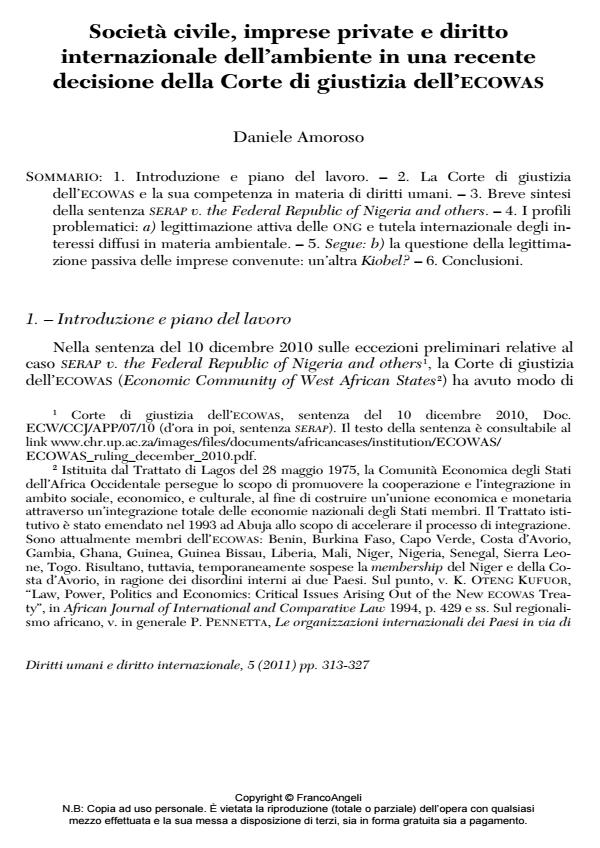Civil society, private enterprises and international environmental law in a recent judgment of the ECOWAS Court of Justice
Journal title DIRITTI UMANI E DIRITTO INTERNAZIONALE
Author/s Daniele Amoroso
Publishing Year 2011 Issue 2011/2
Language Italian Pages 15 P. 313-327 File size 198 KB
DOI 10.3280/DUDI2011-002005
DOI is like a bar code for intellectual property: to have more infomation
click here
Below, you can see the article first page
If you want to buy this article in PDF format, you can do it, following the instructions to buy download credits

FrancoAngeli is member of Publishers International Linking Association, Inc (PILA), a not-for-profit association which run the CrossRef service enabling links to and from online scholarly content.
In the judgment on preliminary objections in the case of SERAP v. Nigeria and others, the ECOWAS Court of Justice was called upon to take sides on some controversial issues concerning the role played by NGOs and the private sector in the field of international environmental law. On the one hand, indeed, it had to assess whether a NGO has locus standi to claim before an international tribunal the infringement of the right (rectius the diffuse interest) to a healthy environment. On the other hand, the Court was asked whether it has jurisdiction over private companies accused of having violated international environmental law standards. The ECOWAS Court answered in the affirmative to the first question, while giving a negative reply to the second one. Both findings were reached on the basis of argumentations which are sure to stir debate among scholars. In the present note, the main question emerging from this judgment will be discussed in some depth.
- More Equal than Others? Lorenzo Acconciamessa, pp.237 (ISBN:978-94-6265-538-6)
Daniele Amoroso, Società civile, imprese private e diritto internazionale dell’ambiente in una recente decisione della Corte di giustizia dell’ECOWAS in "DIRITTI UMANI E DIRITTO INTERNAZIONALE" 2/2011, pp 313-327, DOI: 10.3280/DUDI2011-002005